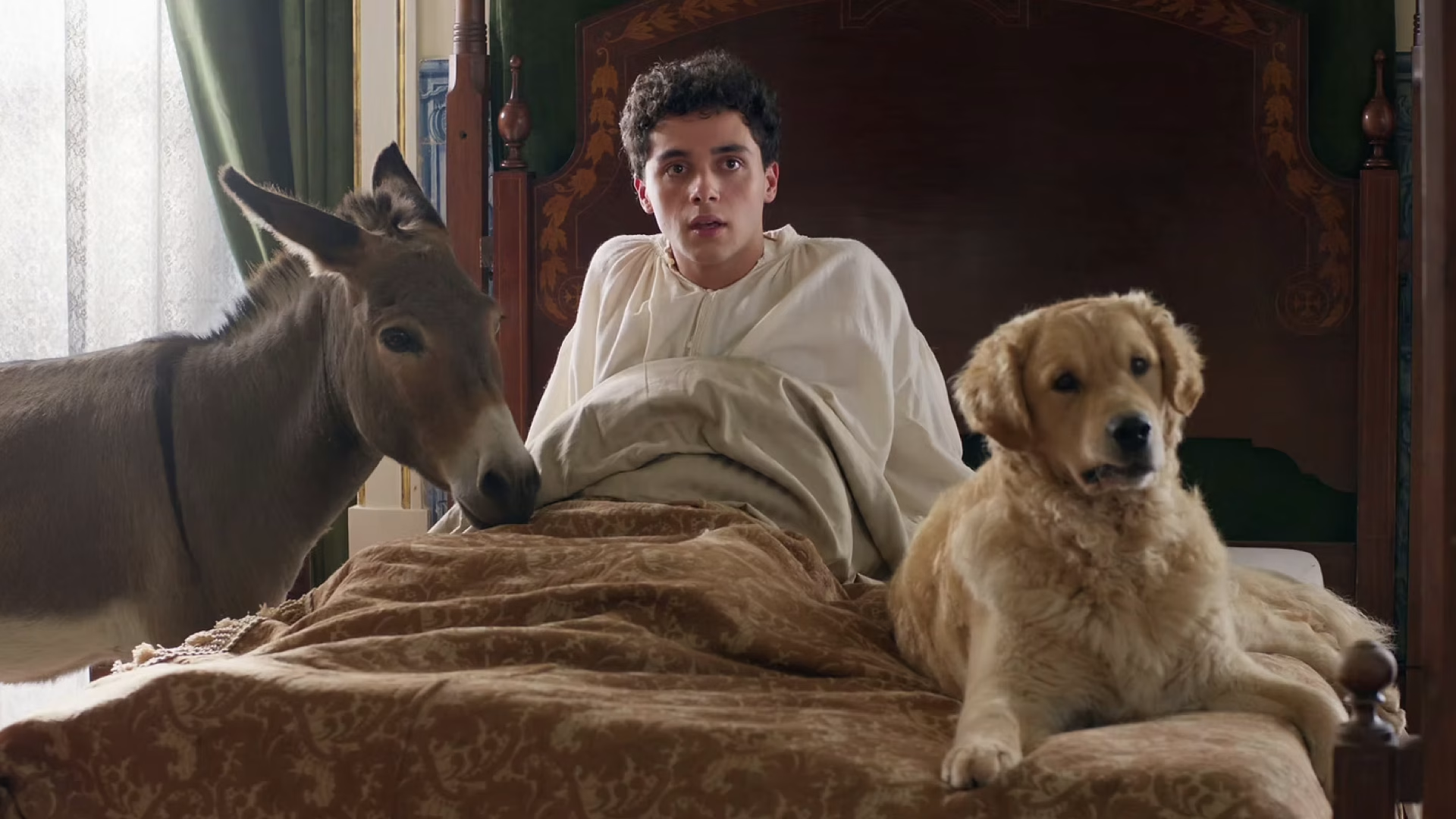The Portuguese-French co-production The Tree of Knowledge (A Árvore do Conhecimento), directed by Eugène Green, continues his distinctive theatrical cinematic language in a three-part allegory. Blending fantasy, philosophy, and politics, the film confronts the exhaustion of the modern world with ancient myths.
Within an Existential Fable
Gaspar, a young man, escapes Lisbon’s outskirts seeking a new life, only to find himself ensnared by a man who has “made a deal with the devil.” This figure, “The Ogre,” transforms tourists into animals for profit. Gaspar escapes with a donkey and a dog, embarking on a journey through Portugal’s historical and mythological layers in search of his identity. Green’s cinema is both poetic and harsh: nature, history, faith, and capitalism collide within the same frame. Through a fable, the film lays bare the contradictions of today’s world.
Green’s Cinematic Language: A Theatrical World
Eugène Green rejects conventional cinematic storytelling. Static shots, actors staring directly into the camera, and dialogue stripped of emotional inflection invite viewers to engage intellectually rather than emotionally. His aim is not to turn reality into theater but to reveal human truth through theatricality. The audience isn’t watching a staged play but a “lived thought.”
Capitalism, Identity, and a Nation’s Soul
The Ogre, a merchant who turns tourists into animals, embodies capitalism’s commodification of the human spirit. Through this grotesque tale, Green explores modern society’s loss of identity—when a nation reduces its culture to a “tourist spectacle.” Ghosts from Portugal’s history, ancient myths, and natural elements converge to create a fable where past and present intertwine. The film portrays “national identity” not as a fixed heritage but as a process constantly questioned.
Humor as Philosophical Parody
Few directors polarize audiences like Eugène Green. The Tree of Knowledge blends absurd dialogue, theatrical humor, and an overtly “strange” atmosphere, both amusing and unsettling viewers. This ironic distance fuels its philosophical depth, exposing the absurdity within a world that takes itself too seriously. The wisdom in the lines, paired with deliberate artifice, is Green’s signature. The audience finds itself smiling while pondering: Why reduce a nation’s soul to a tourist brochure?
A Director’s Persistence: The Power of Pure Form
Green consciously rejects cinematic naturalism. This choice fosters an intellectual rather than emotional connection. Every word, every pause, is a deliberate theatrical gesture. This formal rigor makes Green’s cinema unique—he seeks not to “tell” but to “show.”
Critical Reception and Festival Impact
Premiering at Fantastic Fest (USA), the film stood out in the festival’s “bold and genre-defying narratives” selection. Cineuropa called it “a fable about modern Portugal—both funny and philosophical.” Reel News Daily described it as “a walking metaphor,” praising its intelligence while noting its accessibility as “challenging.” Critics are divided yet captivated: The Tree of Knowledge pulls viewers out of their comfort zone but leaves a lingering intellectual satisfaction.
Apartment No: 26 Note
Eugène Green’s The Tree of Knowledge is a rare work that transforms cinema into a mode of thinking. Absurd, mythological, and philosophical elements converge to hold a mirror to today’s world. At once humorous and merciless, Green reminds us to think in an age where capitalism consumes everything. Perhaps the tree of knowledge is still a form of art—cinema itself—clinging to the earth with its roots.














